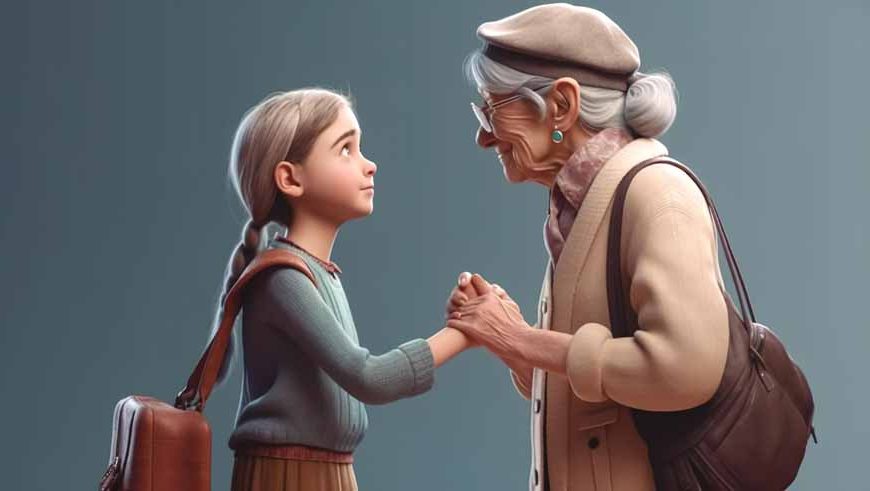Sometimes, parents and teachers have a tricky problem with kids – they forget their good manners! Even if we teach them early on, it seems like they can kind of forget them later. It’s a bit puzzling for the grown-ups. So, let’s talk about why this happens and figure out how we can help kids keep their good manners. It’s like going on a little adventure to discover the secrets of being polite and nice!
- The Influence of Environment on Manner Retention
- Digital Distractions and Manner Amnesia
- Busy Schedules and Manner Neglect
- The Role of Positive Reinforcement
- The Impact of Peer Relationships on Manner Adaptation
- Developmental Stages and Manner Evolution
- Parental Modelling and Manner Mimicry
- Cultural Influences and Manner Variability
Kids are like sponges, you know? They soak up how people act and feel from everything around them. Where they are and who they’re with really shapes how they act. If they’re always around people being not-so-nice or not using good manners, it’s hard for them to keep being super polite like they learned. Especially at school or daycare, where they spend a lot of time, how other kids and teachers act kind of rubs off on them. It’s like they catch good manners and good behaviour from everyone around them!
Teaching good manners is like helping everyone be a superhero of politeness! Moms, dads, and teachers need to team up to make sure the places where we learn and play are super friendly for good manners. It’s like planting magic seeds that grow into polite and kind habits! So, let’s all be manners superheroes together!
In times of lots of gadgets, kids can forget their good manners because screens are like magic magnets. Phones, tablets, and computers are so interesting that sometimes we forget to talk and be nice to people in real life. When we’re in our own little digital worlds, it’s easy to forget about saying “please” and “thank you” or smiling at our friends. So, it’s important to remember that real talking and good manners are like superheroes that help us in the real world, not just the digital one!
Teaching good manners is like being a superhero friend to everyone, even when we use phones and stuff! Parents and teachers need to set some rules about how much time we spend on screens. It’s important to do things that help us talk and play with friends in person too. And don’t forget to always remember our manners, whether we’re talking online or playing games outside! Being nice is super important, no matter where we are!
Sometimes, life gets super busy for both kids and grown-ups. We have so much to do every day, like getting ready fast in the morning, doing fun stuff after school, and finishing homework really quickly. Because of all this, we might forget about saying our manners—like “please” and “thank you.” It’s like we’re in a big race, and there’s not much time to talk about being nice. But it’s important to remember good behaviour, even when things are super speedy. So, let’s try to keep our manners with us, even when life gets all busy and fast!
Kids, just like everyone, love when you say nice things to them! When we use good manners, it’s like being a superhero, and it’s important to tell them they’re doing awesome. When you say, “Great job!” or “Thank you for being so nice,” it makes them feel super happy and proud. It’s like giving them a big high-five for being polite. So, when your friends or siblings are being cool and using good manners, don’t forget to tell them how awesome they are! It makes everyone feel good and reminds us to keep being nice.
Teaching good manners is like playing a game where we balance saying “good job” and helping friends when they forget the rules. It’s not just about telling them when they make mistakes but also cheering when they do something really nice! When we say, “Great job sharing your toys!” or “Thank you for saying please and thank you,” it makes our friends feel happy and proud. This makes them want to keep doing good manners all the time, like magic! So, it’s like being a mannered superhero and spreading good vibes everywhere! Keep it up, and soon everyone will be manners champions!
Kids usually learn things from their friends, not just grown-ups. Having friends is like having teammates who help decide how to act and be nice. If a friend doesn’t act nicely, it might make someone else want to act the same way. So, having good friends is like having good teammates who help us all be kind and good!
Teaching good manners is like growing a garden of kindness! Parents and teachers help us learn to be nice to others and care about their feelings. They tell us to pick friends who are nice and play games that make us work together and understand each other. It’s like having a big team of friends who always share and be kind!
As kids grow up, they learn more about how to act with other people. At first, they might know some rules, like saying “please” and “thank you.” But as they get bigger, these rules might change a bit. It’s like they’re going on an adventure and figuring out how to be with others. What they knew before might turn into something new as they become bigger kids!
Teaching good manners is like helping friends learn how to play nicely. Parents and teachers need to know that manners aren’t always the same but change as we grow up. It’s important to understand what kids can do at different ages and teach them the right manners for that time.
Kids watch and copy what their parents do. It’s like a game of “monkey see, monkey do.” If parents always use good manners and say “please” and “thank you,” guess what? Us kids will do the same! It’s like magic — if parents are nice and polite, we learn to be nice and polite too. It’s super cool because we want to be just like our awesome parents!
Teaching good manners is like playing a game of copycat! Grown-ups, like parents and teachers, are the big leaders in this game. They have to show the good manners they want kids to learn.
Different cultures make the world a big mix of how people act and what they think is okay. Imagine you have friends from lots of places, and they do things a bit differently – it’s like having a bunch of cool games to play! But, sometimes, it might feel like, “Wait, why are they doing it that way?” That’s because everyone has their own set of rules for how to be polite and act around others. It’s like learning new game rules, and it’s okay to feel a bit confused. The more we understand about our friends’ rules, the more fun we can have together!
Teaching good manners is like teaching how to be a super nice friend! It’s important to know about different ways people do things because everyone is special and unique.
When we try to figure out why kids forget their manners, we find out lots of interesting things! Like, some of it comes from the different ways people do things (that’s called culture), or from the TV and stuff we watch (that’s media). Feeling stressed can also make it tricky to remember our manners.
Moms, dads, and teachers need to keep looking at how they teach us and change it when needed. It’s like making sure we have the best plan to help us grow up nice and kind. If we look at all the things around us, like games and friends, and learn about them, we can help make a group of kids who know why being nice is super cool and show it every day!
They say it’s not just about books but also about being kind and respectful. EuroKids is like a magical land where we learn cool things and how to be good friends. So, if you want your child to have a super-duper start for a fantastic and polite future, check out EuroKids! Visit them today, and you might find a world of fun and learning waiting for you!
















